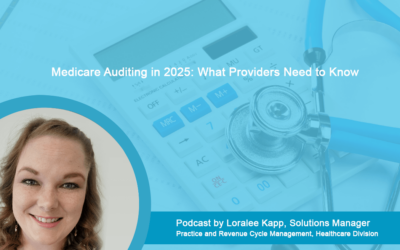A US based medical billing and coding company with extensive experience in the field, Outsource Strategies International (OSI) provides revenue cycle management solutions for all medical specialties.
In today’s podcast, Natalie Tornese, one of our senior solutions managers, discusses the symptoms of Alzheimer’s disease (AD) and treatment options for the condition.
Read Transcript
Hello everyone and welcome to our podcast series. My name is Natalie Tornese. I am a Senior Solutions Manager at Outsource Strategies International (OSI). Wanted to take some time to talk about Alzheimer’s disease (AD).Alzheimer’s disease (AD) ranks as the sixth leading cause of death in the United States. It is an irreversible, progressive brain disorder that causes the brain cells to degenerate. The condition impairs mental functioning and causes a continuous decline in memory, thinking, behavior and social skills, and disrupts a person’s ability to function independently. Forgetting recent events or conversations can be the early signs and symptoms of the disease. However, as the disease progresses, a person with Alzheimer’s disease will develop severe memory impairment and lose the ability to carry out everyday tasks. In most cases, patient symptoms first appear in their mid-60s. The condition impacts women more severely than men. Medications may temporarily improve symptoms or slow the rate of decline, but there is no specific treatment that will completely cure Alzheimer’s disease.
According to the Centers for Disease Control and Prevention (CDC), more than 5.8 million Americans live with Alzheimer’s in the United States now and this number is expected to grow to 14 million by the end of 2060. The symptoms to look for include memory loss (especially short-term), trouble making plans and solving problems, confusion over times or places, and of course misplacing objects. Patients can also experience some mood and personality changes that can devolve into someone being confused, suspicious, or even depressed.
ICD-10 codes used for Alzheimer’s disease (AD) –
- G30 – Alzheimer’s disease
- G30.0 – Alzheimer’s disease with early onset
- G30.1 – Alzheimer’s disease with late onset
- G30.8 – Other Alzheimer’s disease
- G30.9 – Alzheimer’s disease, unspecified
Under category G30, coders must assign the following additional codes to signify –
- F05 – Delirium, if applicable
- F02.81 – Dementia with behavioral disturbance
- F02.80 – Dementia without behavioral disturbance



